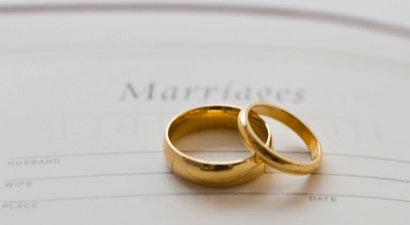LITIGATION SERIES WITH JENNIFER WOKER: COSTS, COSTS, COSTS...
In any litigation, the question of costs is generally forefront of most litigants minds. Who is going to pay for this extravaganza? In this regard, there seems to be a perception that the unsuccessful party always pays the successful party’s costs in full. Regrettably this is fallacy. Costs should follow the successful litigant, but this is not always the case and you certainly shouldn’t expect to recover everything you’ve spent on obtaining your award.
As a starting point, you should be aware that there are, as a general rule, three different types of costs awards / to be incurred in litigation. These are:
- Attorney and own client costs;
- Party and party costs; and
- Attorney and client costs.
Attorney and Own Client Costs
“Attorney and own client costs” are the costs that a litigant agrees to pay their attorneys, usually in terms of a letter of engagement signed between the parties. These are not dictated by any Court tariff and are usually considerably higher than the Court tariffs. Instead, these are costs that are essentially decided upon by your chosen attorney and that you agree to pay your attorney. It is always important to understand these costs upfront before engaging your attorney and you should request a letter of engagement / fee agreement / cost structure to consider prior to engaging with any attorneys so you are aware of what you are agreeing to pay for.
Because choosing an attorney is the prerogative of any litigant, some being in a financial position to choose the Rolls Royce of attorneys and others only being in a position to barely afford attorneys, the Courts are reluctant to make costs awards on an “attorney and own client” basis. The Court’s generally only award “attorney and own client costs” when they want to show their serious displeasure with the losing party and/or, if the matter is unopposed, if the dispute is based on an agreement awarding the successful party “attorney and own client” costs.
Party and Party Costs
As a general rule, regardless of what agreements say and/or what is argued by the parties, Court’s will make a costs award on a “party and party scale”. These are those costs which are reasonable and necessary in order for a successful litigant to bring a matter to fruition and they are dictated by a tariff.
There are High Court and Magistrate Court tariffs. These are generally considerably lower than what any attorneys charge and in the Magistrate Courts the amounts available to claim are dependent on the value of the quantum in dispute.
Hardly, if any attorneys act on tariff. In short, if you are successful in your litigation and you are awarded costs on a “party and party” scale, you are unlikely to recover more than approximately 40% of what you have spent on your legal fees.
Attorney and client costs
In certain circumstances, where the Court wishes to show its displeasure towards an unsuccessful litigant, but not so much so as to award an “attorney and own client costs” award, they will award an “attorney and client costs” award. These are all of your costs that you have incurred with your chosen attorney, but as dictated by the applicable tariff depending on what Court you are in (Magistrate, Regional or High Courts).
General
In matters where you are seeking “attorney and client” or “attorney and own client” costs awards, your attorneys / Counsel have to argue for these costs. It is highly unlikely that a Court will award you these costs without argument being led on why such an award should be made in your favor.
In interlocutory matters, so disputes within a dispute, if the parties agree to “reserve costs” for argument at a later date, usually when the main dispute is heard, if the parties do not specifically argue the “reserved costs order”, the costs for the interlocutory dispute will generally not be recoverable.
Further, some legislation prohibits costs awards in certain matters, these include but are not limited to the Maintenance Act.
Recovery of your costs can be done by agreement between the parties or via taxation by a cost consultant and taxing master in the applicable Court. Depending on what Court you are in, will also influence how long it takes for you to recover your costs, especially if you must proceed with the taxation of your costs.
It is crucial to understand the above information when embarking on any litigation and choosing the right attorney to assist you. If you are based in Johannesburg and would like more information on your rights and what you can expect to recover in litigation, please contact Jennifer Woker on 011 290 2540 / woker@wylie.co.za.





